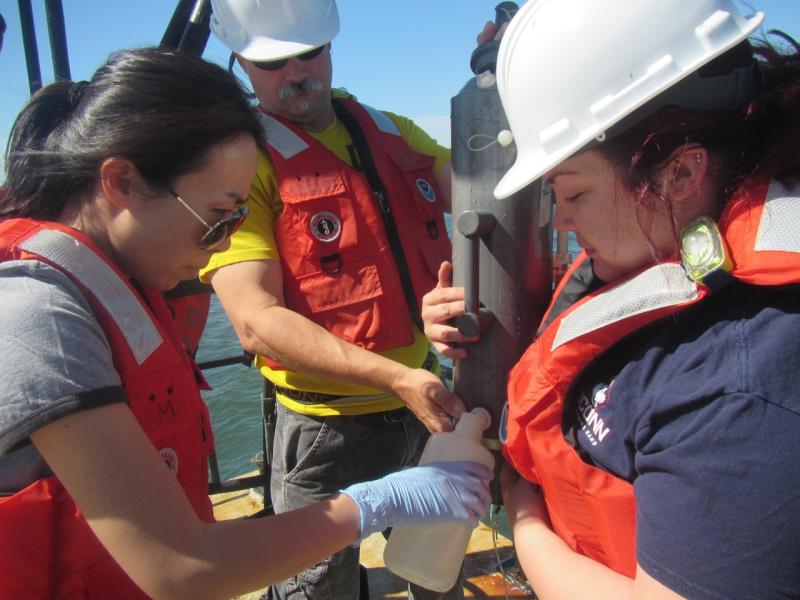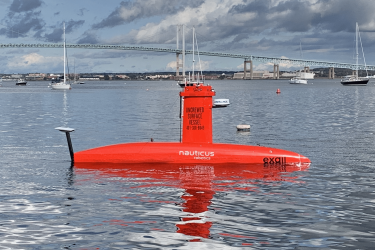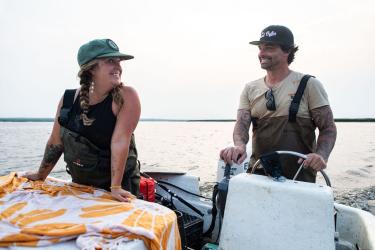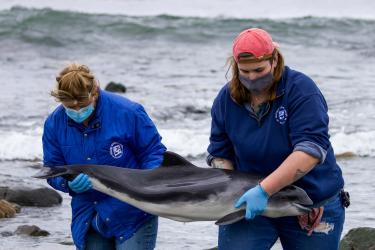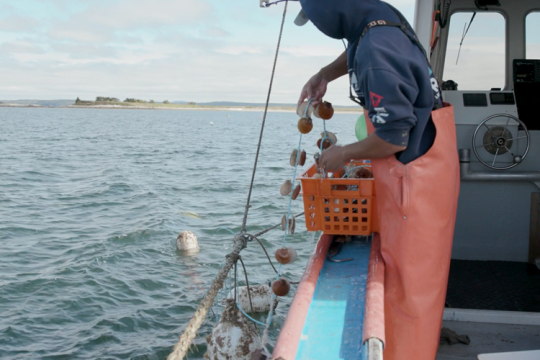Can you tell us about your science journey, your career in science?
I didn’t grow up knowing that I’d become a scientist. As a student, I had shown similar interests and talents in both science and arts. In China, we need to decide if we’d be science-oriented or art (i.e., 文史: language/history)-oriented by the U.S. equivalent of junior high. I thought focusing on science would offer me more opportunities to understand the world better, so I picked science in junior high. Two years later, as I was trying to choose a major for myself as a college freshman, I was convinced that 21st century was going to be about human’s ability to explore the ocean, so I went with Oceanography at Xiamen University in China. By my junior year, I decided it’d be really cool to learn about tools I could use to understand the invisible world in the ocean, so I volunteered as a research assistant in a microbiology lab and learned the basics of classical microbiology techniques. While pursuing my master degree in Environmental Science at Xiamen University, I gained a lot of experience designing and conducting ecological experiments onboard research vessels, and participated in three 3-week-long research cruises. My interests in understanding the invisible marine world continued during my Ph.D. work at Stony Brook University. I started learning and applying molecular techniques to study the planktonic microbial communities associated with a harmful algal blooms like brown tides. Techniques are used to solve problems, yet I can’t deny there has always been some curiosity about techniques that draws me towards my research area: marine microbial ecology. After graduating from Stony Brook, I started working in the Milford lab first as an NRC postdoctoral fellow, then as a contract biologist. Besides microbial cells such as phytoplankton and bacteria, I now also use DNA sequencing to study fish communities.
Could you share an example of a hurdle or obstacle you experienced during your science journey? How did you overcome it?
At this particular point of my career, I’d say a major obstacle for me to conduct science in the most consistent manner is my job insecurity as a contractor. The historical essence of a contractor position for the federal government is that it’s meant to be short-term: you’re hired to do a specific task or project until it’s completed. What I want to achieve here at our Science Center in the long term is to initiate broader applications of some modern molecular techniques into our well-established fisheries and science surveys, and as a contractor, my capacity to do that is rather limited. However, I’m taking baby steps to lay the groundwork and I’m fortunate because a lot of people are helping me. As a scientist, I think it’s important that we identify what we can contribute to our research teams and to our agencies, organizations, or universities at large. Always work with coworkers to create opportunities, keep trying, and be positive.
One of the baby steps I took was to participate in multiple projects during my 3 years at the Milford Lab. My coworkers initiated some of them because of conversations we had about our research goals, while others I initiated from identifying opportunities that led to funding. Whether the work is exploratory or hypothesis-driven, routine or innovative, individual or group, we contribute in our own ways and it’s up to us to remind ourselves of the importance of the work no matter how challenging making progress can be at times.
Tell us about a time in your career when you or your mentor, colleague, or coworker supported you or other women scientists by recognizing, nominating, or rewarding them, or was a champion of change and an ally, or amplified the voices of women when they weren’t being heard?
At the Milford Lab a number of women have been recognized for their work. In 2017, Diane Kapareiko and Dorothy Jeffress (together with Gary Wikfors) were nominated and won a silver medal in the Department of Commerce’s 68th Annual Honor Awards for developing a probiotic bacterial strain to improve survival of oyster larvae. Julie Rose was nominated and won NOAA’s 2017 Administrator’s and Technology Transfer Awards for innovative research and service leading to approved use of oysters as a way to mitigate nutrients in the Chesapeake Bay. Renee Mercaldo-Allen was nominated and won the 2016 NOAA Fisheries’ Employee & Team Member Award for being a great team leader and adviser. I understand that some of the awards came as a result of colleagues’ persistent nomination for years.
As a woman scientist, I am blessed to have colleagues who are considerate of my particular work challenges, supportive of my efforts, and resourceful in introducing opportunities. Renee and Julie provide constant help and encouragement. Renee goes out of her way to understand my challenges and advise me through difficult times. Judy Yaqin Li and I share a similar cultural background and research interest in phytoplankton. We compare notes on what we’ve learned in between cultures, and share a good laugh, or sometimes a life lesson. Because of our shared research interests and experiences, we initiated a joint project looking at the epibiotic microbial communities living on aquacultured sugar kelp. These communities can impact the growth and quality of this aquaculture product, and therefore its sale. The work that Judy and I are doing here will help kelp farmers make informed decisions on when to harvest and contribute to the pool of knowledge leading to regulations on this burgeoning sea crop.
It is impossible to mention the names of everyone who has helped me. Participating in this Q & A reminds me that I should do more to “pay it forward” to other young women who are interested in pursuing science as a career. I was the project leader for Women in Science during my Ph.D. Now as a biologist, I welcome student interns to do research with me and help them pursue their Ph.D. dreams. I hope that as I continue to grow as a scientist that I will be able to do more for other women scientists.
What advice do you have for the next generation of women scientists about a science career?
Everyone is different so there is no ultimate advice. I want to share one thought that may be helpful to some. I am aware that even today in 2019, some women scientists, especially those who are young and not as established, still find it more difficult to make their voice heard as often as their male colleagues. Personally, I am lucky to have worked with colleagues who make me feel supported and secure, yet a few times at conferences or roundtables I can say I felt marginalized. The tricky part is that we are not always sure that certain treatments we receive, or we perceive receiving, are due to the fact that we are women. For example, I am a woman, I have an Asian face, I look relatively young, I am not a native speaker…I am many things. My personal strategy is not to be over-sensitive, not to consider myself a victim, but rather, to channel my energy to focus on growing as a scientist.
Another thought that is on my mind right now is that we disagree a lot in science. A great strength for scientists is to be able to express disagreements kindly and logically. Anyone who is able to take feedback from others and use it to make positive changes will keep improving. And through such efforts we will grow stronger and be better able to advocate for ourselves and for other women who may face discriminatory treatment. In this way we’ll create a more equitable, more enjoyable working environment, and produce stronger science.
